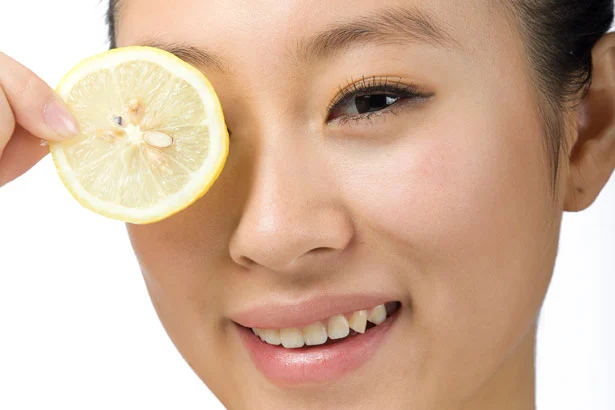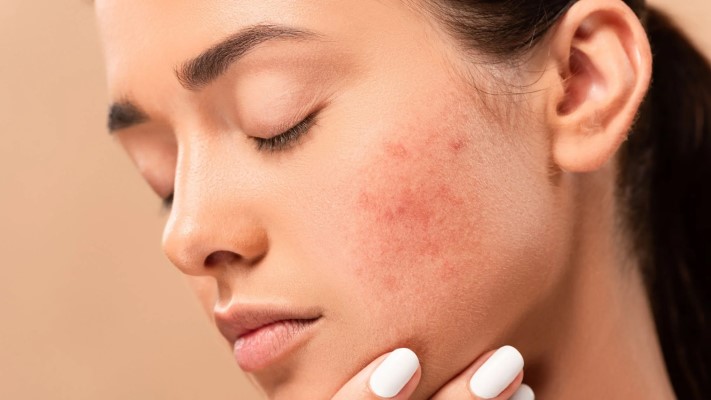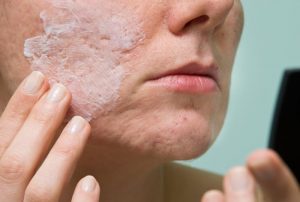
Lemon Juice for Acne Scars
Lemon juice for acne scars is a popular home remedy, but does it really work? Discover the benefits, how to apply it safely, and common mistakes to avoid.
Lemon Juice for Acne Scars: Benefits, Application, and Safety
Ever stared at your acne scars in the mirror and wondered if lemon juice could be the magic fix? You’re not alone. This zesty fruit has made waves online as a natural cure for fading scars—but is it really as powerful (and safe) as people say?
Let’s break it all down—the good, the bad, and the citrusy truth. Whether you’re looking for DIY solutions or just curious if this old-school remedy is worth a try, this guide is for you.
What Causes Acne Scars in the First Place?
Before we dive into lemon juice, it helps to understand why scars happen. When acne penetrates deep into the skin, it damages tissues beneath. As your skin tries to heal, it produces collagen—sometimes too much or too little.
This imbalance leaves behind:
- Atrophic scars (depressed): Think ice-pick, boxcar, or rolling scars.
- Hypertrophic scars (raised): From excess collagen during healing.
- Dark spots (PIH): Not scars technically, but leftover pigmentation.
Lemon juice is often suggested for pigmentation and mild scarring—but not all types of scars respond the same.

Why Is Lemon Juice Considered for Acne Scars?
So, what’s the deal with lemon juice? It contains natural compounds that might help, such as:
| Compound | Potential Benefit |
|---|---|
| Vitamin C (Ascorbic acid) | Brightens skin, promotes collagen |
| Citric Acid | Gently exfoliates dead skin cells |
| Antioxidants | Fights free radicals, protects skin |
| Astringents | Tightens pores and reduces oil |
Sounds good, right? But there’s more to the story.
The Benefits of Using Lemon Juice for Acne Scars
Let’s talk about the upsides—because yes, some people do see results.
1. It May Lighten Dark Spots
Lemon juice is packed with vitamin C, known to fade hyperpigmentation. It can gently reduce the appearance of post-acne marks, if they’re new.
2. Helps with Gentle Exfoliation
Thanks to its natural acidity, lemon juice can help slough off dead skin cells. This reveals newer, brighter skin underneath and can improve texture over time.
3. Antibacterial Properties
Lemon has mild antibacterial effects, which may help prevent future breakouts if applied correctly (and cautiously).
4. Astringent Action
It tightens the skin, minimizing large pores and giving a smoother appearance. That can make scars look less noticeable—at least temporarily.
Risks and Side Effects: Why You Should Be Cautious
Here’s the part nobody loves to hear—but it’s vital.
5. Lemon Juice Can Be Too Harsh
Lemon juice is very acidic, with a pH of 2. Your skin’s natural pH is about 5. Using lemon juice can upset this balance. This can cause:
- Irritation
- Redness
- Dryness
- Even chemical burns in severe cases
6. Photosensitivity Is Real
Using lemon juice on your face and then going out in the sun? That’s a bad mix. It can cause phytophotodermatitis, or skin burns from sun exposure. It hurts a lot.
7. May Worsen Certain Skin Types
If you have:
- Sensitive skin
- Dry skin
- Eczema or rosacea
…lemon juice might not be good for you.
How to Apply Lemon Juice for Acne Scars (Safely)
Want to try lemon juice? Here’s a safer way to do it without hurting your skin.
Step-by-Step Guide:
- Do a patch test first
Put a little on your jawline. Wait 24 hours. - Dilute it
Mix lemon juice 1:1 with water, rosewater, or honey. - Apply only on affected areas
Use a cotton swab—not your whole face. - Leave on for 5–10 minutes max
Then rinse with lukewarm water. - Always follow with sunscreen
Never skip this. Even indoors, UV rays can react with citrus.
DIY Recipes with Lemon Juice for Acne Marks
Here are some gentler alternatives using lemon juice as part of a calming mix:
| Remedy | How to Make It |
|---|---|
| Lemon + Honey Mask | 1 tsp lemon juice + 1 tsp raw honey. Apply 10 mins, rinse. |
| Lemon + Aloe Vera Spot Gel | 1 tsp lemon juice + 1 tbsp aloe gel. Dab only on dark spots. |
| Lemon + Yogurt Face Pack | 1 tsp lemon + 1 tbsp plain yogurt. Leave for 10 mins. |
These mixtures balance the harshness of lemon with soothing ingredients.
Better Alternatives to Lemon Juice for Acne Scars
There are safer, more effective options out there:
- Niacinamide: Brightens skin and fades dark spots
- Vitamin C serums: Stabilized, pH-balanced options are better than raw lemon
- Retinoids: Help with skin turnover and collagen
- Chemical peels (AHAs/BHAs): Controlled exfoliation
- Microneedling or laser treatments: For deeper scars
If you’re serious about results, these are worth exploring.
Who Should NOT Use Lemon Juice on Their Skin?
If any of these apply to you, skip the lemon:
- You’ve had bad reactions to skincare products before
- You have active acne or broken skin
- You’re out in the sun often without reliable SPF
- You want fast results without risk
What to Do If Lemon Juice Irritates Your Skin
Already tried it and now your face feels like it’s on fire? Here’s how to cool it down:
- Rinse thoroughly with cool water
- Apply aloe vera or cucumber gel
- Use a fragrance-free moisturizer
- Avoid the sun and apply SPF 30+
- If redness or stinging lasts over 24 hours, consult a dermatologist
How Long Does Lemon Juice Take to Work on Acne Scars?
If it works for you, expect very gradual improvement. We’re talking:
- 4 to 6 weeks of consistent, gentle use
- Only for mild pigmentation—not deep, textured scars
Patience is key, but safety is even more important.
Is Lemon Juice Recommended by Dermatologists?
Short answer? Not really.
Most dermatologists steer clear because of the risk of irritation and lack of proven studies. While vitamin C is a gold standard in skincare, lemon juice is not the safest source.
Want a derm-approved option? Go for serums with:
- L-ascorbic acid
- Ferulic acid
- Hyaluronic acid
These give you the benefits without the burn.
Can Lemon Juice Permanently Remove Acne Scars?
Let’s clear this up: Nope. It might lighten marks, but it can’t erase deep scars. Acne scars, like indented ones, need professional treatment.
Lemon juice can be a small part of a routine—but it’s not a miracle.
Final Thoughts: Should You Use Lemon Juice for Acne Scars?
If you’re thinking about using lemon juice on acne scars, ask yourself: Is the risk worth the reward? Sure, it’s natural and cheap, but that doesn’t make it the best option.
Use it cautiously, and never skip patch testing. Better yet? Opt for skincare that’s designed for your face—not your lemonade.
FAQs: Lemon Juice for Acne Scars
1. Can I use lemon juice on active pimples?
Nope! It can irritate and worsen inflammation. Stick to gentle acne treatments like benzoyl peroxide or salicylic acid.
2. Is it okay to leave lemon juice on overnight?
Absolutely not. That’s a fast track to redness and possible chemical burns. Limit use to 5–10 minutes, tops.
3. Can I mix lemon juice with turmeric for acne scars?
You can, but be careful—both can stain or irritate. Mix with soothing ingredients like yogurt to balance it out.
4. Does lemon juice help oily skin too?
It might make your skin feel less oily at first. But, it’s not a lasting fix. Niacinamide is a better choice.
5. What if my skin feels tight after using lemon juice?
Feeling tight means it’s too harsh. Stop using it right away. Use something soft like aloe vera or ceramide cream to moisturize.


